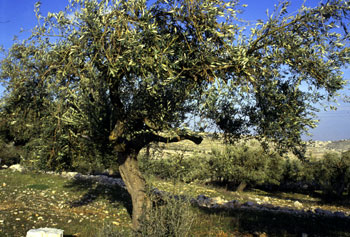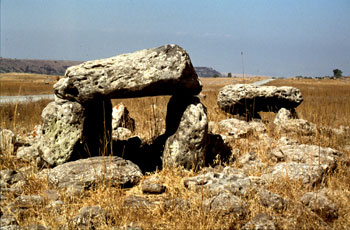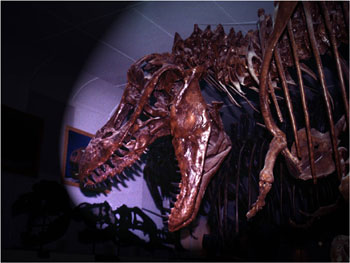Job 8-9
A Bible study with Jeffrey J. Harrison
Last time we heard Job’s response to Eliphaz and his accusation that Job’s troubles were because of sin in his life. Job didn’t claim to be sinless: he simply objected that the punishment didn’t fit the crime, that the tragedies in his life were far worse than any sin he may have committed. He also rebuked his friends for bringing judgment rather than compassion. And, turning to God, he asked why man is the subject of such constant testing: What is man that you are mindful of him?
—a phrase that he gives a much more negative slant than the Psalmist, who uses the same words to marvel at God’s wonderful care (Psa. 8:4). If his troubles are the result of sin, Job asked, why doesn’t God forgive him and take them away?
Now, in chapter 8, we hear for the first time from Bildad the Shukhite. “Bildad” sounds a little like the Hebrew words “without love” (bli dod), and that seems a pretty fair description of his attitude toward Job:
Bildad Speaks for the First Time to Job
Job 8:1: “And Bildad the Shukhite answered and said,
8:2: ‘How long will you* utter such things and the words of your* mouth be a great wind?’”
How long will you go on like this, Job, with words that are a lot of hot air?
8:3: “‘Will God (El) pervert justice? And will Shaddai pervert righteousness?’”
Can God do anything that is not just?
8:4: “‘If your* children sinned against him, then he sent them into the power of their transgression.’”
If something bad happened to your children, Job, it’s because they sinned and got what they deserved. Here Bildad shows a disturbing lack of compassion for his grieving friend.
8:5: “‘If you* seek for God (El) and from Shaddai you* seek favor,
8:6: If you* are clean and right, surely now he will rouse himself for you* and he will restore your* habitation of righteousness.’”
If you are really right with God as you say, Job, surely God will restore you. On the surface, this sounds like a word of encouragement. But beneath the surface, it’s an accusation: If things don’t change soon, Job, it’s your fault.
8:7: “‘Though your* beginning is small, yet your* end will increase greatly.’”
There’s still hope for you Job! Here’s more of Bildad’s two-edged “encouragement.” But it’s also a foreshadowing of what really is the case: Job is upright, and God does restore him in the end and increase him greatly. But he hasn’t done it yet. So even though Job is righteous, he doesn’t look it right now. Bildad is judging from appearances rather than truth.
The view of God that Bildad has is mechanistic. It makes God into a glorified pop-bottle dispenser: you put in your money and out comes a treat. You pay your tithe, you will be blessed. A, B, C: the “laws” of the spiritual universe, as they are often marketed. Well, yes and no. There is a relationship between doing right and getting a reward. But it’s not always so direct and immediate as we would like it to be. There are often troubles on the highway to heaven, and not all of them are because of our own sin. My good deeds are storing up an eternal reward. But I may not see as much of that reward in this life as I might like. In fact, Jesus taught that we should try not to reap the reward in this life, so we can have it eternally in the next: Lay up for yourselves treasures in heaven
(Matt. 6:20, also 6:1-6). On the contrary, it’s the narrow, troubled road that leads to life (Matt. 7:14 reads literally “...the way is afflicted [troubled, difficult] that leads to life...”).
8:8: “‘For ask now of a former generation and establish it as something their fathers have searched out’”
In other words, it is a truth established by former generations that:
8:9: “‘That we are of yesterday, and we don’t know that our days on the earth are a shadow.’”
Our lives are brief and insignificant.
8:10: “‘Do they not teach you*, speak to you*, and from their heart bring forth words?’”
Listen to the testimony of the generations that have gone before! It proves that what I’m saying is right.

8:11: “‘Does a reed rise up without a marsh? Do rushes grow without water?’”
Of course not. Papyrus (pictured here) and other reeds grow in the water, and can’t survive without it.
8:12: “‘Though not plucked off while it is fresh, yet it is dry before any grass.’”
Though it grows in the water, yet even without being cut, it withers before other plants. It looks, on the outside, like it’s doing well, yet it dies more quickly than other plants.
8:13: “‘So are the paths of all who forget God (El); and the hope of the godless will perish’”
That’s what it’s like for those who turn away from God. It looks like things are going great, but suddenly they wither. Though he doesn’t say it directly, Bildad implies that Job is one of those who has forgotten God and for whom everything has now withered as a result.
8:14: “‘Whose hope is fragile and whose confidence is the house [the web] of a spider.’”
The godless put their hope in what is as fragile as a spider’s web.
8:15: “‘He leans on his house [his web], and it does not stand; he takes hold of it, and it does not rise up again.’”
Like a spider’s web, it doesn’t hold him up, but collapses. He tries to set it back up again, but he can’t. Isn’t this what so many people’s hope is? A web of false beliefs that they hang onto, desperately at times. But it won’t hold them up. And once it’s been destroyed, it cannot be built up again.

8:16: “‘He is moist before the sun, and over his garden he sends out his shoots.’”
The godless seems to be doing well before the heat of the midday sun grows strong, when everything seems to be going well for him.
8:17: “‘Around a pile of stones his roots are interwoven, a house of stones he sees [or imagines] it to be.’”
His roots are wrapped around a pile of rocks, which he imagines will provide him with an enduring dwelling.
8:18: “‘But if it swallows [or devours] him, [removing him] from his place, then it will lie to him, saying ‘I didn’t see you*.’”
Being swallowed by the ground is an image of death, as in the Hebrew name for death, Abaddon, which means “the devourer.” A good example of this was when the earth opened and swallowed
many in the rebellion of Korah (Num. 16:32). If this pile of stones on which the luxuriant plant of the wicked was growing should suddenly devour him (as a result of his death), it will never admit that he had ever been there: a poetic way of saying that there will be no evidence that he had ever lived.

The image may go deeper, though, because a pile of stones was one of the ancient forms of burial in the areas in which Job and his friends were living. You can still see many of these tumuli burials in the Golan Heights and in ancient Gilead. (The “table” burial stones in the photo [dolmens] were originally covered with a pile of smaller stones.)
From this point of view, the stones that the wicked had hoped would provide an enduring house have instead become a tomb. If so, this may also be a comment on the passage of time and the ruins of preceding generations that dot the land.
8:19: “‘Look, this is the joy of his way; and from the dust another will sprout up.’”
The “joy” of the wicked is a brief season of prosperity which soon ends, leaving no trace of his existence. And many others like him will follow.
8:20: “‘Look, God does not reject the blameless (tam) and does not strengthen the hand of those who are evil.’”
God does not aid evildoers, nor does he turn away the righteous. So, since God has obviously rejected you, Job, you must not be blameless. There must be sin in your life. The irony here is that Bildad uses the same Hebrew word, tam, against Job that God had used earlier in his favor (Job 1:8, 2:3).
8:21: “‘He will yet fill your* mouth with laughter and your* lips with a shout of joy.
8:22: Those that hate you* will be clothed with shame and the tent of the wicked# will be no more.’”
But there’s still hope for you, Job! You just need to get right with God, and all your troubles will go away!
Job Responds to Bildad
9:1: “And Job answered and said,
9:2: ‘Truly I know that it is so, yet how can a man (enosh) be right with God (El)?’”
You’re right, Bildad! God does oppose the wicked, there is punishment for sin; and God does reward the righteous. Job shares the viewpoint of his friends. But this neat, standard theology doesn’t work in his case. It doesn’t fit the situation he finds himself in. He was already living the best he knew how, which makes him ask the question: how can anyone be righteous before God? If what I was doing before wasn’t good enough, then how can anyone ever be good enough?
And that’s exactly the point. We can’t ever do anything good enough to merit God’s favor. All our righteous deeds are as filthy rags (Isa. 64:6). That doesn’t mean we should stop doing good. It just means that the righteousness of God is far above the righteousness of man. This is a truly devastating idea for the natural man. How can I get what I want from God if I can’t attain righteousness through my own efforts? And this is exactly what Job is struggling with.
9:3: “‘If he should want to contend with him, he will not answer him one in a thousand.’”
This can be taken to mean either that God will not answer the man who wants to justify himself before God (LXX), or that the one trying to do so will not be able to answer back when God addresses him (NASB, NIV, KJV).
9:4: “‘Wise in heart and mighty in power, who has hardened himself against him and was safe?’”
You can never win an argument with God. He will always be right, and you will always be wrong. You can’t defy him and get away with it.

9:5: “‘He who moves mountains, and they do not know when he destroys them in his anger,’”
God causes volcanoes to erupt even in places that people know nothing about.
9:6: “‘Who causes the land to shake from its place, and its pillars shudder,’”
God causes earthquakes that shake the land both on the surface and in the depths below.
9:7: “‘Who speaks to the sun and it does not appear, and he seals up the stars,’”
The first part of this verse could refer simply to the nighttime hours, when the sun is not visible. But it might also refer to a total eclipse, when the sun disappears behind a dark new moon. The sealing of the stars might simply refer to the daylight hours in general, when the nighttime stars are hidden from view. But it might also refer to the mysterious appearance and then the sudden disappearance of the stars in the daytime that takes place during a total eclipse.
9:8: “‘Who alone stretches out the heavens and treads on the heights of the sea,’”

The first part of this verse is an allusion to the Creation, when God stretched out the heavens like a tent over the earth (Psa. 104:2, Isa. 40:22, Jer. 10:12, etc.). The second part is an allusion to God’s power over the sea, probably referring to his dominion over the waters of the Flood. But the specific image used here, of walking on water, points prophetically to the ministry of Jesus (we’ll get back to this in just a moment).
9:9: “‘Who makes Aash, Kesil, and Keemah, and the chambers of the south,’”
Aash means “Waster,” which is probably a euphemism for one of the Babylonian stellar deities that are still remembered today in the names of the constellations in the night sky and the signs of the zodiac. Some translations identify this as the Great Bear (Ursa Major), the constellation we often refer to as the Big Dipper, but this is just a guess. Kesil means “Fool,” probably referring to another of the Babylonian deities. Some equate this with Orion, but this, too, is just a guess. Keemah means “the cluster,” which may refer to the Pleiades. But more important is the subtext here: that since God made these things, they are obviously not gods to be worshipped.
Heavenly chanbers, like those mentioned in the second part of the verse, appear in visions recorded in intertestamental times (the time between the Old and the New Testaments). Seers were taken away in the spirit to see heavenly chambers (or storehouses) for the snow, rain, and hail among other things. But originally, these chambers may have referred to the vast starless regions in the skies of the southern hemisphere. How would Job know about these? Mankind was not foolish in earlier ages, as is often supposed, but in many ways was wiser than we are today, with lots of time and the same inclination we have to contemplate the universe. It also helped that the starry skies were much brighter in those days, before electricity and street lights washed out the nighttime skies.
9:10: “‘Who does great things that cannot be searched out and wonderful deeds [miracles] without number.
9:11: Look, he goes over me and I do not see, and he passes by and I do not perceive him.’”
We can’t see God even if he goes right by us.

This verse is mentioned together with vs. 8 above in Mark’s telling of the miracle of Jesus walking on the water. “At about the fourth watch of the night, he [Jesus] came to them, walking on the sea [from Job 9:8], and he intended to pass by them [from Job 9:11]” (Mark 6:48). Why does Mark include these hints to the book of Job? Who does Job say is the one walking on the water? God. And who is the one doing this same miraculous action on the Sea of Galilee? Mark wants us to connect the dots: to see that Jesus is God. As Jesus himself says in that same passage: I am
(not “it is I” as often translated; Mark 6:50). Why this curious expression? It’s a hint to the name of God revealed to Moses in Exo. 3:14: I am that I am.
Through his words and his actions, Jesus revealed his divinity at the Sea of Galilee. Mark helps us understand this by hinting to these verses in the book of Job.
9:12: “‘Look, if he snatches away, who can bring it back? Who says to him, what are you* doing?’”
God’s power and abilities are vastly beyond ours. The word “snatch” (khataf) used here is like the action of a thief, as in Jesus’ warning that he is coming like a thief in the night
(Rev. 3:3, 1 Thess. 5:2). It’s also a reminder of the similar Greek verb (arpadzo) used in the New Testament to describe God supernaturally snatching people up. Philip was supernaturally snatched up and transported to Ashdod (in Acts 8:39). Paul was snatched up in his visit to the third heaven (2 Cor. 12:2). The same word is also used of Jesus when he was snatched up by God in the ascension (Rev. 12:5), and of the time of his return, when all the believers on earth will be snatched up to meet the Lord in the air (1 Thess 4:17).
9:13: “‘Eloah [God] does not turn back his anger; the helpers of Rahab lie prostrate beneath him.’”

This is an allusion to God’s absolute victory in the Flood.
Who is Rahab? Most likely, this is another allusion to religious beliefs outside of Israel. In these societies, the Creation was understood to have been a battle between the high God and a mythological dragon. (The name “Rahab,” which means “Pride,” is likely a euphemism to avoid using the pagan name of this dragon goddess, just as with the stellar deities mentioned in Job 9:9 above.)
But in the Bible (in Job, the Psalms, and Isaiah) Rahab appears not in the context of the Creation, but of the Flood. Why would a dragon be associated with the Flood? For the same reason that dragons are associated with the sea in old maps: they were once the largest creatures in the sea, and so came to be seen as a symbol of the watery deep. At the time of the Flood, the raging waters would have led to the destruction of millions of these huge dragons (or dinosaurs), the largest and most visible of its victims (see our article “Dinosaurs in the Bible”).
It’s easy to see how in pagan societies, the memory of the Flood and its association with dragons would eventually be mythologized and misremembered as a Creation event. After all, the Flood was very much a re-creation of the world. But the Bible, with its more accurate memory of earlier times, preserves a more naturalistic view of this symbolic dragon.
But at the same time, there is also a sense in which Rahab (“Pride”) is a symbol of the devil, who ultimately provoked the troubles that led to the Flood. The identification of Satan with a dragon-like creature dates back to the Garden of Eden: the snake, since it could originally walk, must have been some kind of dragon or dinosaur. (The snake only crawled on its belly after the curse; Gen. 3:14.) This same imagery appears again in the Book of Revelation, where Satan is described as a huge dragon waiting to destroy the Lord’s Messiah (Rev. 12:4,9).
Who are Rahab’s helpers? In the myths of the surrounding societies, these were gods that came to the dragon’s assistance before being destroyed. In the Bible, with its more naturalistic understanding of Rahab, they likely refer to all the other creatures, including fallen angelic beings, that participated in the rebellion for which the Flood was a judgment (Gen. 6:11-12). But now, they lie prostrate beneath
God’s feet, a symbol of God’s total victory in the Flood, and of the destruction of millions and billions of creatures in his wrath.
9:14: “‘How much less will I answer him, will I choose my words with him’”
What can you say to someone with so much power?
9:15: “‘Whom if I were righteous, I would not answer; of my Judge I would rather seek favor.’”
Even if I were right, what could I say? Faced with God, I could never make a case for myself, but would simply plead for mercy.
9:16: “‘If I called and he answered me, I would not believe that he hears my voice,
9:17: Who with a storm bruises me and multiplies my wounds without cause.’”
Even if he answered me, I wouldn’t believe that he had heard me, since he continues to lash me with troubles.
9:18: “‘He does not allow me to refresh my spirit, for he fills me with bitterness.
9:19: If it is a matter of strength, see, he is mighty; and if of judgment, who will summon me [to appear against him]?’”
If it’s a contest of strength, who could overpower God? If it’s a matter of justice, who has the authority to call him to account?
Notice carefully the picture of God that Job paints here. It’s one shared by many people: that God is an all-powerful, vindictive judge in the sky that’s always against you and never gives you a break. Hell-fire and damnation is all they see: someone who wants to take all the fun out of life. And this makes God appear perverse, unkind, and unloving. So they reject him, or even deny that he exists, even though they can’t quite free themselves from this negative image of who God is.
Here we’re getting at Job’s true problem with God—and that of millions of others. And I don’t think it’s just since his troubles began that Job felt this way. Why do you think he was compulsively offering up all those sacrifices for his children (Job 1:5)? He had the same problem that confronts unsaved humanity in general: When is enough enough to please God? As Micah 6:7 says, Is the Lord pleased with thousands of rams, with tens of thousands of rivers of oil?
What can man do to earn God’s favor? Nothing that we could ever do or give is great enough. He is too great, he is too powerful.
In coming to this realization, Job is closer than his friends to the truth. God is a bigger God to him. Their theology is simplistic: A, B, C; God in a box; a pop-bottle dispenser God. But Job sees that God is infinitely greater than that and infinitely more complex.
9:20: “‘If I am righteous, my mouth will condemn me; if I am blameless (tam) it will declare me perverse.’”
Even if I were in the right, faced with God my own mouth will condemn me. What does Job mean by this? That all his righteous deeds are nothing before God. Even his moral purity is unclean to God.
9:21: “‘I am blameless (tam)! I don’t know myself, I despise my life.’”
“But I am blameless!” Job cries out. In his despair, he doesn’t even know who he is anymore, he doesn’t recognize himself, and he hates his life.
9:22: “‘It’s all one [it’s all the same, it doesn’t matter], therefore I said that he puts an end to the blameless (tam) and the wicked.’”
In the end, he says, it doesn’t really matter whether he is righteous or not: for God destroys the guilty and the guiltless.
9:23: “‘If a scourge kills suddenly, he mocks the despair of the pure.’”
When there’s a plague or catastrophe of some kind, it kills the good and bad alike.
9:24: “‘The earth has been given into the power of the wicked, he covers the faces of its judges. If not he, then who is it?’”
God has given over the world to wickedness. He covers the faces, in other words, he hides the truth from judges—otherwise they would judge justly. None of this could happen without God’s approval, so therefore God is responsible. And if not him, then who?
This is exactly the point view of so many people. If there’s a God, why is there war, why is there famine, violence, and crime? How could a good God allow these things? Job’s view is a bit different, though, than modern atheists: he continues to accept that there is a God. But if God allows these things, as he said earlier, then it really doesn’t matter at all if you’re good or bad. All get the same fate.
Again, Job’s view of God is greater than his friends. He recognizes the foolishness of people trying to get right with God through their own actions. He recognizes the incredible distance between God and man. As Isaiah puts it: For my thoughts are not your thoughts, neither are your ways my ways
(Isa. 55:8).
Job has recognized his absolute weakness and emptiness faced with God. The terror of God is upon him, and as the Bible teaches, the fear of God is the beginning of wisdom. But only the beginning. For his is still an essentially negative view of God. He doesn’t yet have the gospel that moves on from for all have sinned and fall short of the glory of God
to for God so loved the world, that he sent his only begotten Son...
(Rom. 3:23, John 3:16). Job doesn’t know the story of God’s love.
9:25: “‘And my days have been swifter than a runner, they have fled, they have seen no good.
9:26: They have passed on like reed boats, like an eagle rushes on its food.’”
Reed boats were used in the Nile River in Egypt and elsewhere. Because they were made of reeds, they had a short life span: they could only be used a few times before they stopped floating. Job senses his days slipping away, and despairs of the futility of his life. What good was his life if all that he based his life on, doing good to gain God’s favor, is ineffective?
9:27: “‘If I say I will forget my complaint, that I will leave behind my sad face and smile,
9:28: I am afraid of all my pains. I know that you* will not acquit me.’”
He’d like to forget his complaint against God, and put on a bold smile despite his circumstances. But he can’t because his pains don’t stop, for God does not relent.
9:29: “‘If I am wicked, why then do I toil in vain?’”
If I’m counted as wicked, why should I labor to do what’s right?
9:30: “‘If I had washed myself with snow and cleansed my palms with lye,
9:31: Then in the pit you* will dip me and my outer garment will abhor me.’”
The pit is a common symbol of death in the Bible. No matter how clean he makes himself, Job says, he will still die, and his rotting body will be abhorrent even to his garments.
9:32: “‘For he is not a man like me that I might answer him, that we might come together in judgment.
9:33: There is no arbiter between us, that will put his hand on the two of us.’”
We are in such a different class of existence than God, there is no way that he can be accountable to us or that anyone might act as an arbiter between us.
9:34: “‘Let him take away his rod from upon me and let not the dread of him terrify me.
9:35: Then I will speak and I will not fear him; for now it is not so with me.’”
Job asks that God would take away his troubles, so that he can be relieved of his terror of the Almighty. But as it is, his terror continues.

